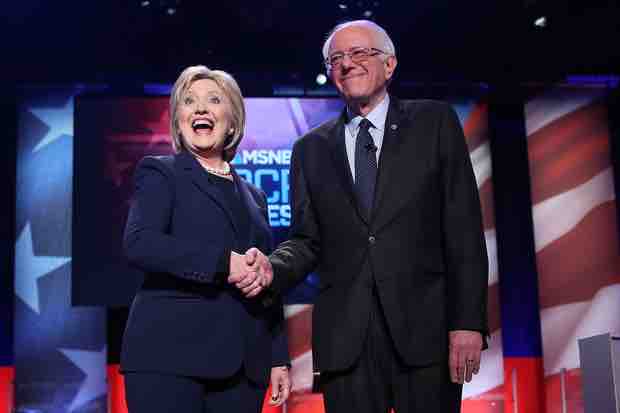In recent rallies for Hillary Clinton, Jay-Z, Beyonce and Lady Gaga have all lent their celebrity clout to the embattled Secretary of State. As a candidate somewhat lacking in the charisma of her predecessor Barack Obama, she needs all the help she can get.
She hasn’t just courted female and minority voters; she has focused on offering a message empowerment to millennials, who feel left out of an American economy they believe only caters to the top 1 per cent. Clinton understood that reaching more young voters would be a key to her victory. This younger subset is comprised of people born between the early 1980s and the early 2000s, but neither candidate has found it easy to engage with them. Recent polls indicate that 72 percent have an unfavourable view of Trump while 49 percent have a negative view of Clinton.
Many young people feel duped by the body politic. Plenty are suffering under the burden of college debt, or are working unpaid internships on the off-chance they can secure a decent-paying job upon entering the work force. Clinton’s main problem is that many of these voters feel an allegiance to Bernie Sanders – and young voters feel she railroaded their preferred candidate. They now feel excluded from the machinations of Washington, like pawns in Clinton’s grand plan. She has tried to reach these voters with promises to make a college education affordable and her attempts to bring marginalised groups into the national dialogue.
According to the Washington Post, polling suggests that young voters will follow the same pattern they did in the previous two elections by voting heavily for the Democratic nominee. However, the data also suggests that many will lodge a protest vote by supporting third-party candidates like Jill Stein of the Green party or Gary Johnson of the Libertarian party . One quarter of younger voters said in an ABC News poll that they will vote for a third-party candidate. In two national surveys conducted by the Washington Post and ABC News, millennial voters favour Clinton over Trump by nearly 2 to 1. Yet it is unclear if they will turn out in force given their revulsion towards both candidates.
The strategy for Clinton and Trump, 68 and 70, respectively, is to reach younger voters and make them understand the consequences of their inaction. Clinton suggests her opponent could incite nuclear war with his irascible temperament, while Trump reminds voters that Hillary’s dishonesty could be catastrophic, that her career has been marked by scandal, and that she should be in jail for her misuse of a private email server.
But younger voters aren’t primarily concerned with these issues. Millennials want their own concerns to be addressed. They want to know their place in the new economy, and how they stand to benefit from globalisation and technological change. They want their presidential candidate to address the root cause of unemployment and their lowing earning power. It will be interesting to see how their concerns are addressed, and whether Clinton was able to harness the millennial vote. The concern will be that young voter apathy – as symbolised by the yard signs ones see in college towns across the country, which read ‘Everybody Sucks: We’re Screwed 2016’ – may have taken its toll.
Jonathan Owen is a journalist based in Santa Barbara, California
 After the American people have voted, what next for the US and the rest of the world? Join panellists including Sir Christopher Meyer, KCMG, former British ambassador to the US, for a discussion chaired by Andrew Neil on 30 November at RIBA, London. Tickets include a drinks reception. In association with Seven Investment Management. Book now.
After the American people have voted, what next for the US and the rest of the world? Join panellists including Sir Christopher Meyer, KCMG, former British ambassador to the US, for a discussion chaired by Andrew Neil on 30 November at RIBA, London. Tickets include a drinks reception. In association with Seven Investment Management. Book now.







Comments